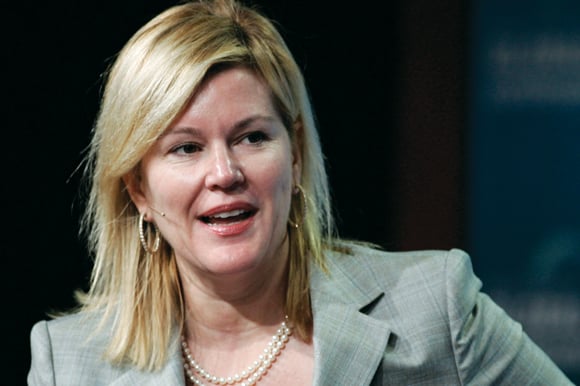With the municipal bond market so far having suffered none of the Armageddon scenarios predicted late last year, investors are able to enjoy a major buying opportunity in the muni space, according to Tim Pynchon, manager of the $700 million Pioneer High Income Municipal Fund Ticker:(PIMAX).
“We're starting to see better interest by investors looking for muni bonds,” he said. “And it seems as though retail investors are starting to stick their toes back into the market.”
But even as muni bond yields hover between 4.5% and 7%, depending on credit quality, the tide favoring muni bonds has yet to recover fully from the stampede sparked in large part by banking analyst Meredith Whitney last year.
Since Ms. Whitney's December forecast that the muni market would experience hundreds of billions of dollars' worth of defaults, muni funds have experienced 30 consecutive weeks of outflows totaling a staggering $50 billion.
Signs of a turnaround have emerged over the past two weeks as high-yield muni funds have seen $70 million worth of net inflows.
Mr. Pynchon, who is generating a 7% average yield in his fund, acknowledged the potential risks in the muni space but also said the market is rarely this attractive.
In terms of yield, muni bonds historically generate about 85% of the yield on a comparable Treasury bond.
The 15-percentage-point difference reflects the tax advantages of investing in a muni bond.
But when the market gets nervous and starts chasing the quality of Treasury bonds, that ratio can get pushed way out of whack.
At the height of the financial crisis in late 2008, for example, the muni-to-Treasury yield ratio was at 200% “because everybody thought the sky was falling,” Mr. Pynchon said.
And shortly after Ms. Whitney's public comments regarding the possible collapse of the muni bond market, the yield ratio spiked to 115%.
The ratio since has fallen to 101%, which is still 16 percentage points above average.
To be clear, there were other dark clouds hanging over the muni bond market at the time of Ms. Whitney's remarks, including debate over the Bush tax cuts (which were extended) and the future of the Build America Bonds program (which was allowed to expire).
Ms. Whitney's call for hundreds of billions of dollars' worth of muni bond defaults stood out as starkly in contrast to the fact that the market has never experienced a single year with more than $8 billion worth of defaults.
“She came in out of left field with this call and we knew she was wrong,” Mr. Pynchon said. “And what we saw was investors' selling in a frenzy, not understanding what they were selling or even what they owned.”
A call to Ms. Whitney was not returned.
These days, Mr. Pynchon explained, municipals are cheap and yields are up.
“There is value to be found in triple-A-rated all the way down to below-investment-grade,” he said. “But I know there has not been good transparency by the municipalities. Even as a professional, it has not been easy to analyze the municipalities, and it didn't help that Meredith Whitney's comments painted with a broad brush the whole muni market.”
Ultimately, he added, it is the responsibility of the investor “to understand what you own.”
“When you start to dissect the market, you'll see that there are some very healthy municipalities out there,” he said. “And to sell just for the sake of selling never makes sense.”
Portfolio Manager Perspectives are regular interviews with some of the most respected and influential fund managers in the investment industry. For more information, please visit InvestmentNews.com/pmperspectives.







